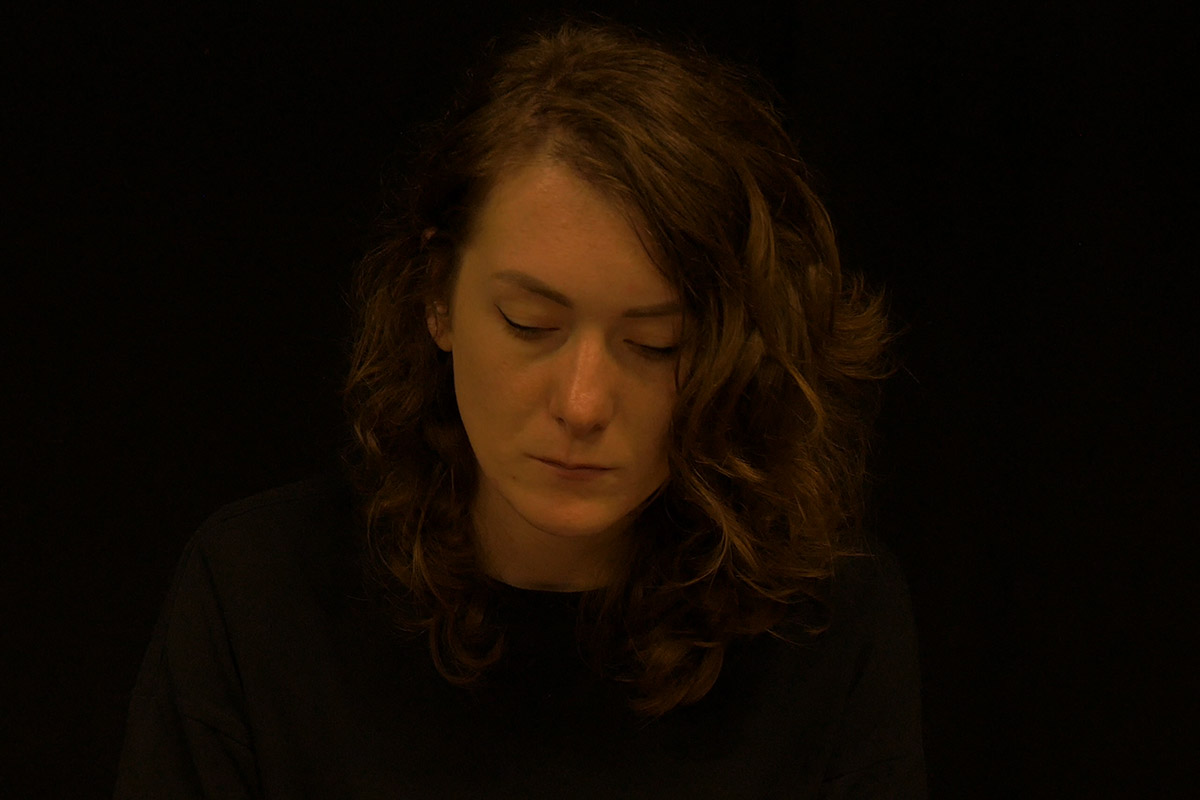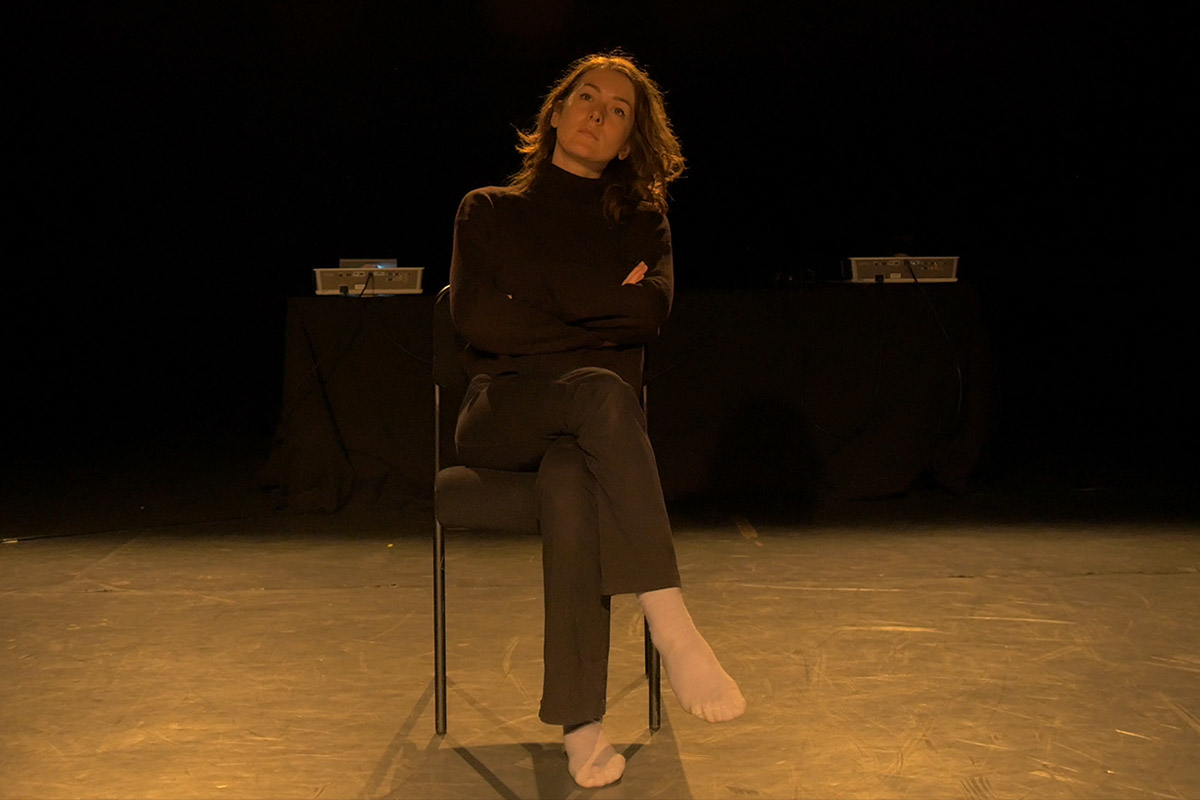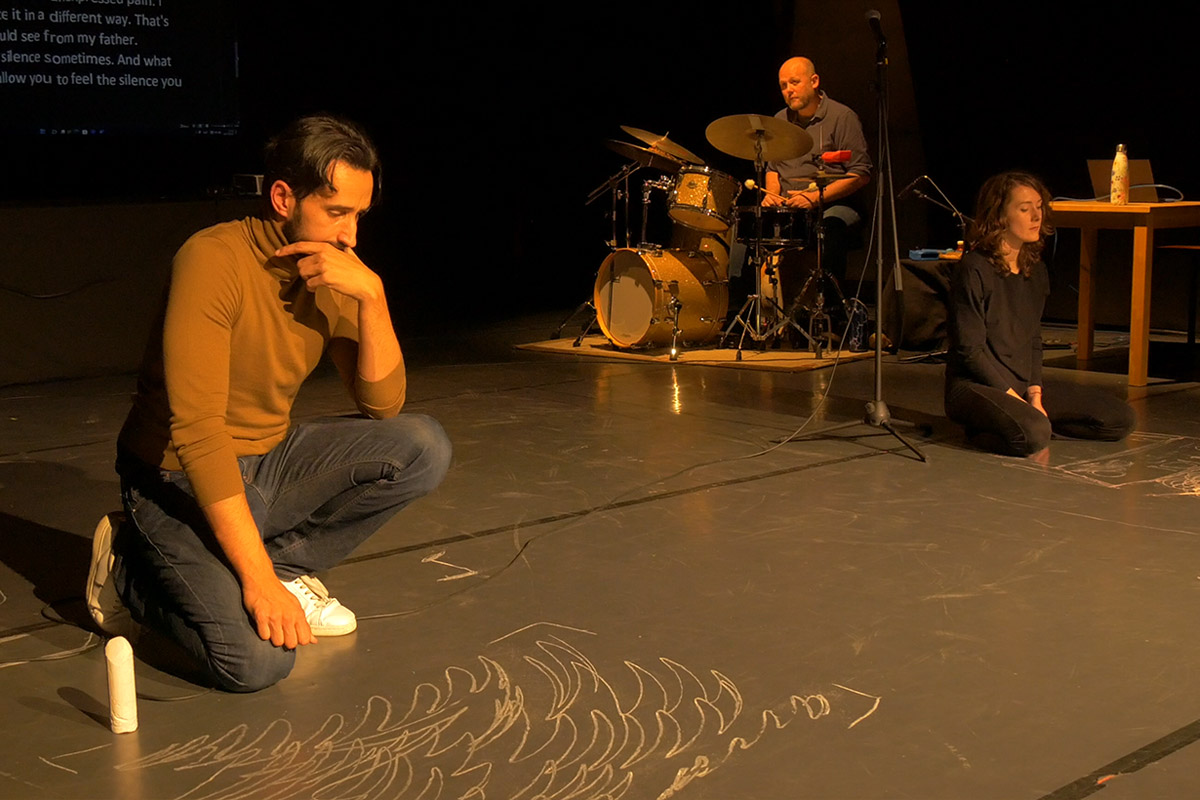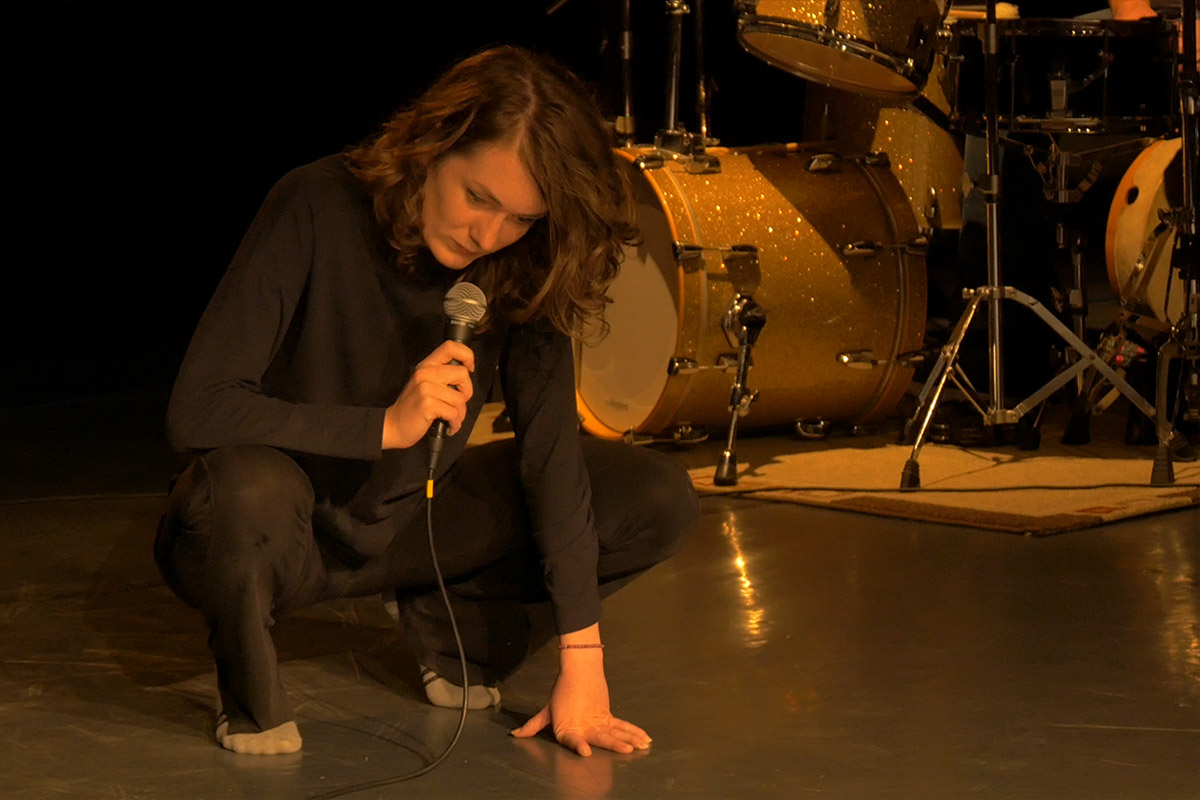Silence across generations
What happens when strangers meet in the theater? How do encounters on a stage take shape, and how do they shape the participants?
And what connections are created when these performers share a common trauma – a silence that was handed down from the generations before them?
That is what this project investigated. Lejla, a performer from Sarajevo was the central figure. In a weeklong series of encounters she was paired up with different people. Each day she was joined by a second stage performer and by a live drummer.
Under the guidance of Leen Braspenning they wrote, told and performed stories. Not just their own, but each other’s stories as well. The exact form of the staged interactions was determined in the moment. Accompanied by live music and performed for a live audience.
The performers brought their own themes and their own past into the performance. What Lejla brought was silence: the silence that is kept in place between generations about a past conflict (a war). That silence shapes Lejla’s identity to this very day. She is looking for a way to break the silence and address the lingering conflict in images, in dance, and through performance.
Lejla is the other. The stranger from another country. This research project confronted local performers with her experience.
The audience witnessed how these local performers reacted to her stories, how they used sound, images and their body to respond to her silent trauma. The audience members were welcomed to a singular performance that existed for only that evening. A one-time meeting that arose between these players, the musician and the audience.
Direction & concept Leen Braspenning
Performance Lejla Subo, Mostafa Benkerroum, Rashif El Kaoui and Walter Schudel
Live percussion Chryster Aerts
Support Walpurgis / deFENIKS
2022

The seeds for this theatrical project were sown 2021 when I went to Bosnia to conduct exploratory research. I talked to various drama therapists about how they employ the theater to help people deal with the trauma of the 1990ies.
During that research stay, I interviewed Lejla Subo. This 24-year-old had a lot of insights into the mental health issues her generation struggles with, and the need to put that struggle into stories. She was very vocal about the lingering trauma of the war, both in older and younger people. You can listen to an edited version of that interview here.







